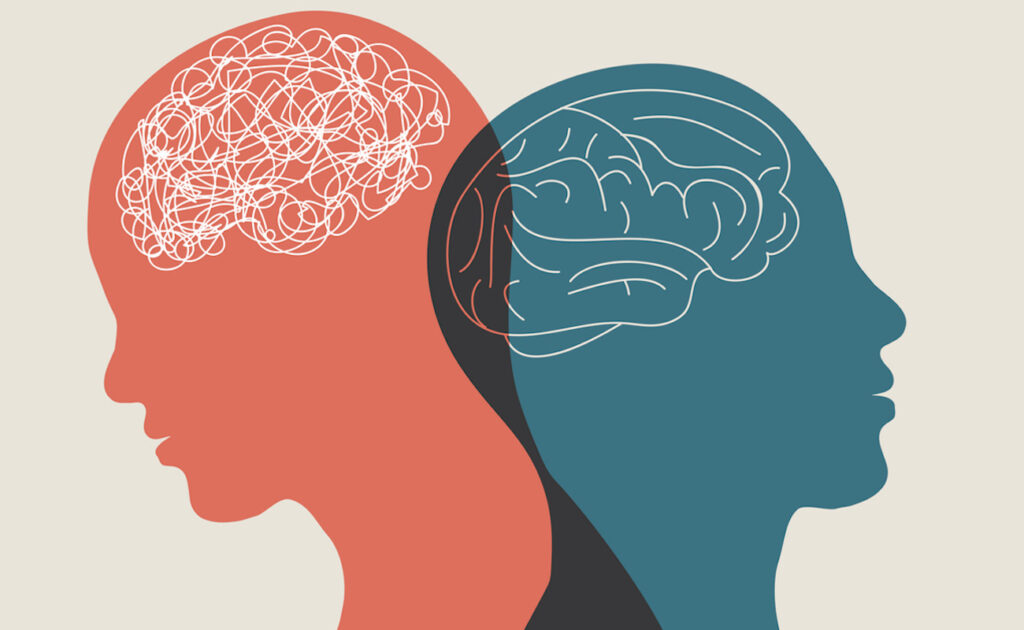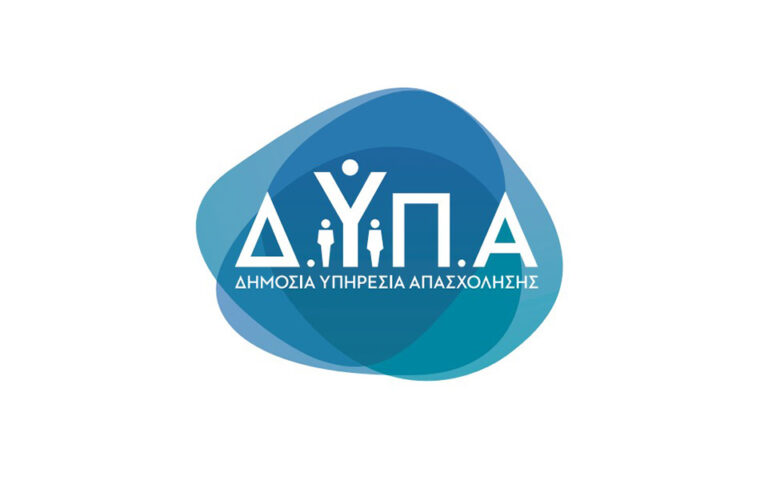- 40% cannot manage the stress they are experiencing
- 35% feel pessimistic about the future, 70% irritated and 50% lonely
- 45% say they feel tired when their day starts
- 35% feel melancholy and that they don't feel like doing anything
- 76% say they are effective, even though they work remotely
- For 44%, their mental health is now their top priority

The pandemic and the measures adopted to deal with it have significantly burdened our daily lives. This has raised concerns about the mental health and well-being of employees globally. EY Greece, Hellas EAP and the Laboratory of Experimental Psychology of the Department of Psychology of the National and Kapodistrian University of Athens, wanting to investigate the extent and dimensions of the problem, jointly conducted research on the mental health and well-being of employees in Greece.
The survey took place in May/June 2021. That is, at the time when the second universal lockdown was being completed in Greece. It was supplemented by 1,232 employees in the private and public sectors of the country. And it brings to light alarming findings about the effects of the pandemic on the daily lives and mental health of Greek workers.
More specifically, nine variables were investigated:
- stress
- depression
- somatization
- anger
- loneliness
- wellbeing
- Quality of life at work
- attitudes towards remote work
- attitudes towards mental health
It is noted that during the period of the investigation:
- 35% of participants worked remotely
- 30% face-to-face
- 35% as part of a hybrid work scheme
Increased signs of depression, anxiety and anger (mental health )
The research recorded high rates for a range of symptoms associated with depression. Thus, more than a third of the employees surveyed feel melancholy (35%) and pessimistic about the future (35%), or say they have no appetite for anything (34%).
The symptoms associated with anxiety are also quite extensive:
- two out of three (68%) feel nervous or agitated
- 40% be overstressed
- 18% feel afraid
The unprecedented conditions of the pandemic have also led to manifestations of anger:
- 70% of respondents feel irritated
- 3 out of 10 have uncontrollable outbursts of anger
- 2 in 10 report that they often get into arguments
Expected, especially during the lockdown period, was the intensity of the feeling of loneliness. Half of the participants said they feel from little to too much loneliness, while 17% say they feel isolated, with women and young people experiencing the highest rates of loneliness.
The phenomena of somatization are also intense, that is, the expression of psychological or emotional problems as physical symptoms, such as headache, severe stress and panic attacks; Indicatively, one in three employees (35%) says they have had weakness and lightheadedness, 15% have nausea or upset stomach, and 1 in 10 observed difficulty breathing and pain in the heart or chest;
More burdened women and younger workers
According to the research, the conditions of the pandemic seem to have affected workers, however, in most variables, the problems are more pronounced in women, who show higher values of anxiety, depression and somatization than male participants, while also showing a lower quality of life value. This finding is probably linked to the fact that women often have a disproportionately large responsibility for more activities besides their work. Especially during the two lockdowns in Greece, it is certain that they were called upon to balance between conflicting priorities, such as childcare and household chores, while working, in many cases, from home.
Despite strong initial concerns about the effects of the pandemic on older people, it seems that they eventually show greater resilience than younger people, who, on the other hand, show higher values of anxiety, depression, somatization and anger.
At the same time, the presence of children in the family seems to reduce the psychological impact of the pandemic, as employees who have children have lower rates of anxiety, depression, somatization and loneliness, while they also have a higher quality of life.
The survey also finds that the problems, in general, are most pronounced among workers in public institutions and those who work remotely. Executives holding management positions show lower prices:
- Anxiety
- Depression
- somatization
- Loneliness
from the rest of the employees.
Well-being and working quality of life
The upheavals in everyday life have also significantly affected the quality of life of employees. Thus, 40% say they are not sure that they can or that they really cannot manage the levels of stress they have 27% believe that their interpersonal relationships have been negatively affected. Thus, 40% say they are not sure that they can or that they really cannot manage the levels of stress they have 27% believe that their interpersonal relationships have been negatively affected.
Importantly, 6 out of 10 say they took care of themselves during the lockdowns. Only 4 out of 10 stop thinking about work when it stops and create time for rest. At the same time, only 4 out of 10 say that the quality of their sleep is good.
A more complex picture is in terms of the quality of life at work. Just 4 in 10 in the private sector and 1 in 10 in the public sector believe that their organisation takes care of their mental health and well-being. Overall, 39% say their organisation supports employees who have issues with their mental health (e.g. anxiety, stress).
At the same time, only 36% of private sector employees and 9% of public sector employees consider that their organization enables all employees to speak openly about mental health issues. Less than half (48%) know where to turn to get support within their organization when dealing with issues with their mental well-being.
Positive views on teleworking in mental health
Research confirms that remote work has been positively accepted by the majority of employees. Three in four (76%) say they are effective while working remotely. 78% feel safe performing their role by working remotely. However, less than half (49%) feel confidence that they can develop in their careers while working remotely. Only 48% have managed to maintain their physical/mental health and well-being under these conditions.
Positive findings of the survey include a change in employees' attitudes towards mental health. For 44% mental health is now their top priority. Two out of three (63%) say the pandemic has helped them care more about their own and others' mental health. 65% say they are willing to seek help from a specialist when faced with increased stress. At the same time, 29% believe that the COVID-19 pandemic has helped reduce the stigma in relation to mental health.
Employees' expectations of the company
Against this background, businesses have a critical role to play in helping employees cope with the burden on their mental health. Among the actions employees would like to see include:
- stress management and self-care trainings (50%),
- the presence of a psychologist in the workplace (31%),
- psychological support by phone or through applications (>20%)
- remote work policy, where possible, at a rate of 30%
One in two employees (52%) also consider it important to cultivate a culture of respect for time through new ways of working.
Eftychia Kaselaki, Partner, Consulting Services and Human Resources Consulting Services of EY Greece
"The pandemic, social distancing measures, prolonged lockdowns and an abrupt change in the working model have inevitably had a negative impact on the mental health of workers, especially women and younger people. And, while the remote or hybrid form of work has been positively accepted by the majority of employees, optimal adaptation to this regime requires careful planning and support from businesses and their leadership teams. Company managements and Human Resources Departments must listen to the concerns of employees and take initiatives that will help the smooth transition to this new normal. The elimination of mental health problems and the recognition of psychological needs and challenges in terms of personal balance and well-being, is a first important step, at a time when human capital is being transformed and acquiring new, increased and more complex expectations from the organizations in which it works".
Tatiana Tounta, CEO Hellas EAP
"The pandemic has brought to the surface the major issue of the importance of good mental health and well-being of employees and highlighted the importance of their psychological safety as well. The now clear need to take care of the mental health of employees is not a "fad" that will pass. It comes and connects an aggravated condition of the pre-COVID era, with the prolonged effects of the unprecedented situation we are experiencing today on the well-being of employees and with an uncertain future where physical and mental health will be a constant demand in everyday human reality.
As employees themselves now state that taking care of their mental health is their priority, they expect from the organizations working to take action in this direction. The question that therefore arises is not whether the mental well-being of employees should be is a key strategic priority for the agencies. The questions that arise are in what ways leaders will choose to understand the needs and concerns of employees. What approaches will they use to move into the field of prevention and how holistic will be the choice they will make to care for the long-term mental health and well-being of their people and ensure the sustainability of their organizations."
Petros Roussos, Director of the Laboratory of Experimental Psychology of the Department of Psychology of the University of Athens on mental health
"The results of this survey confirm trends that have also been reflected in recent international surveys. The pandemic has redefined priorities in the work context and it is now imperative to use the findings of this and similar research towards adapting the strategic goals of organizations. As teleworking increases and organizations move towards more remote and flexible forms of work, it is necessary to move towards studying those critical skills that employees will need to collaborate digitally and respond to new challenges.
I think the pandemic has taught us another important lesson: systems that have emphasised efficiency also have weaknesses, as they are often lacking in flexibility to respond to crises. Resilient organisms are the ones that respond best, as they correct their course with change. It's critical to transition to a design for mental resilience, creating more responsive organizations that:
- play an expanded role in the economic, physical and mental well-being of their workers;
- take into account employees and their needs
- provide them with diverse, adaptive and flexible roles to acquire interoperable knowledge and training."




